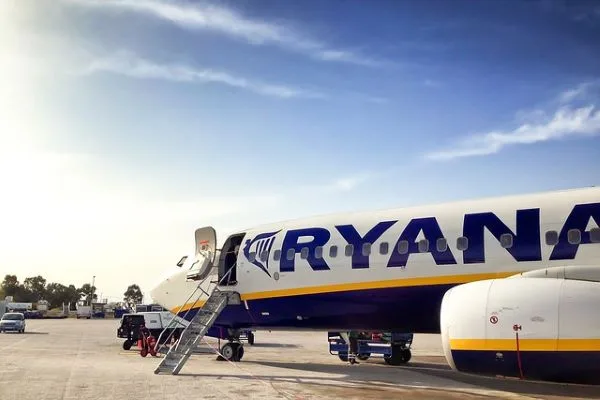Blockchain Revolutionizes Airline ticketing

Blockchain technology has become a disruptive force in a number of businesses recently. The airline ticketing industry has greatly benefited from this technology. With a host of advantages for both airlines and customers, blockchain has completely changed how airlines issue, track, and authenticate tickets. Now let’s explore how blockchain has changed the way that tickets are sold for flights.
Enhanced Transparency and Security
A transparent and secure platform for handling and storing ticketing data is provided by blockchain technology. Airlines can produce an unchangeable record of each ticket transaction by using distributed ledger technology. This eliminates the risk of illegal operations such as the sale of fake tickets.
Streamlined Ticketing Process
Blockchain simplifies and increases the efficiency of the ticketing process. Passengers may easily purchase tickets from airlines or reliable third-party marketplaces using blockchain-based ticketing systems. Eliminating intermediaries lowers expenses while lowering the likelihood of mistakes and delays. Additionally, the blockchain enables automatic ticket validation and verification, decreasing the need for manual inspections and boarding times. With the increasing technological competition between airlines, British Airways has invested in a company called Zamna which combines facial recognition and blockchain technologies.
Smart Contracts and Ancillary Services
Blockchain technology is characterized by smart contracts, which are automatic agreements with specific conditions and circumstances. Smart contracts make it possible for additional features like baggage handling, seat upgrades, and loyalty programs to be executed automatically when purchasing airline tickets. Due to the fact that these services are automatically activated based on predefined criteria inside the smart contract, passengers can experience a flawless travel experience. Additionally, to reduce delays airlines such as Ryanair should use blockchain technology and smart contracts.
Data Privacy and Consent
Passengers frequently need to supply substantial personal information while using standard ticketing systems, which raises questions concerning data privacy and security. These issues are addressed by blockchain technology, which gives users complete authority over their own private information. Systems for selling tickets on the blockchain use encrypted, decentralized storage to keep private data safe. Passengers have more control and transparency over their personal information because they can give their consent for specific data to be shared with airlines or other parties.
Interoperability and Interline Settlements
With the use of blockchain, many airlines and ticketing services may operate seamlessly together. It makes interline settlements more effective by removing the necessity for challenging and costly settlements between several systems. In order to facilitate seamless passenger transfers and connections between various carriers, airlines can now simply collaborate and exchange ticketing information. As a result of this interoperability, airlines work together to improve connectivity and travel options for passengers.




